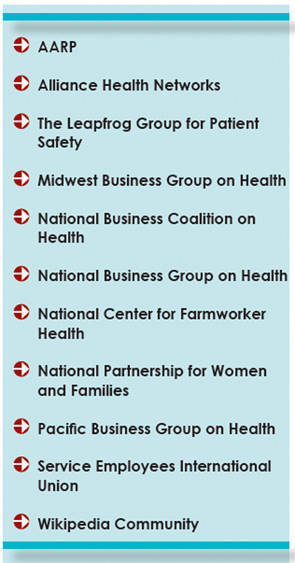“What this list does is tease out the key points from already well-vetted guidelines to get this out to other specialties and to the lay public,” she said, adding that creating a list like this that is easily accessible to the public could be built into the development process of future guidelines.
Explore This Issue
June 2012The list was developed based on the directive by the ABIM foundation to choose “five things physicians and patients should question.” The directive was designed to ferret out those tests and procedures that are commonly used but may not always be necessary, as well as to emphasize the importance of physicians and patients working together to ensure that the most appropriate care is chosen and delivered.
Along with the AAO-HNS, an additional seven specialty societies have recently signed on and will be submitting their own lists (see Specialty Societies Participating in “Choosing Wisely” Campaign).
Impact on Clinical Practice
Dr. Cox said most of the five items listed by the AAAAI may be better directed at primary care physicians and other physicians who see patients on the front lines of health care. She noted the first item on the list in saying, “We [allergists] see a lot of patients coming to us with a battery of tests that might not have been directed by clinical history,” she said. “That becomes a problem with food testing because the patients come in and you’ll have a battery of positive food tests that aren’t clinically relevant to the patient.”
She also highlighted the second item, which discourages the use of antibiotics for uncomplicated acute rhinosinusitis, saying that this item may provide some comfort to physicians who are trying to get patients to wait and see before treating.
The evidence for this item came from the 2007 AAO-HNS guidelines, the most recent guideline at the time the list was drafted (Otolaryngol Head Neck Surg. 137:365-377), she said. Since then, a more recent guideline on sinusitis, published by the Infectious Diseases Society of America (IDSA), recommends treating acute sinusitis immediately if it is determined to be bacterial (Clin Infect Dis. 2012; doi: 10.1093/cid/cir1043).
She added that although the AAAAI recommendation based on the AAO-HNS guideline appears to contradict the newly published IDSA recommendation, she doesn’t think that is the case, because only 1 percent of acute cases of bronchosinusitis are determined to be bacterial. “You really have to be familiar with the two guidelines to see that this is not contradictory,” she said.

Leave a Reply